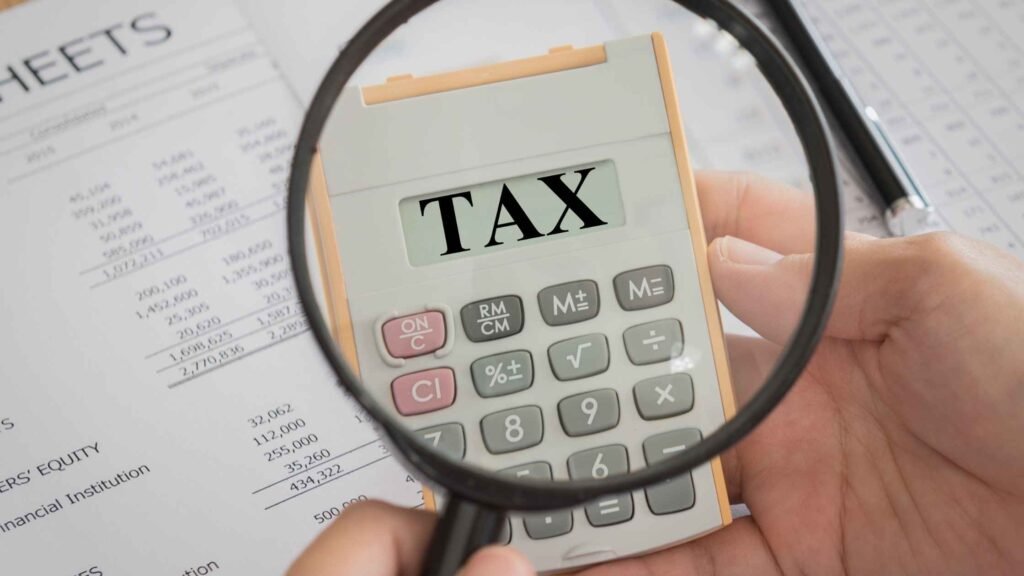Small business taxes can feel like a year-end mountain to climb, especially when financials are unorganized and deadlines are looming. Fortunately, with the right structure and a proactive mindset, you can reduce stress, stay compliant, and even uncover tax-saving opportunities. Whether you’re running a sole proprietorship or an LLC, this step-by-step guide will walk you through everything you need to prep and file small business taxes efficiently.
1. Start with Organized Records
One of the most common reasons small business owners run into trouble during tax season is disorganized financial records. Before anything else, you should gather all relevant documentation: bank statements, receipts, invoices, payroll records, and tax forms like 1099s. Having a clear digital or physical filing system helps streamline the entire process.

2. Reconcile Accounts and Clean Up the Books
Accurate bookkeeping is the bedrock of a smooth tax season and effective management of small business taxes. Take time to reconcile your bank and credit card accounts, match up deposits and payments, and review for any discrepancies. Tools like QuickBooks or Wave make this easier, but human review is still essential.
Consider using a monthly bookkeeping checklist to make sure you’re not overlooking recurring expenses or forgetting to categorize income correctly. Not only does this ensure accuracy for small business taxes, but it also supports better financial forecasting for the coming year.
3. Separate Business and Personal Finances
Blurring the lines between personal and business expenses is a common trap for small business owners. It can lead to inaccurate deductions and raise red flags with the IRS. If you haven’t already, open a dedicated business bank account and keep your transactions cleanly divided. This small step alone will save hours of sorting come tax time.
4. Maximize Your Deductions
Deductions are your best friend when it comes to reducing small business taxes and taxable income. Common write-offs include office supplies, business meals, vehicle mileage, insurance, software subscriptions, and even part of your rent if you work from a home office.
For many entrepreneurs, working with a financial expert like those at Fiscal Profits can help you unlock even more strategic deductions. Our financial consulting services often uncover overlooked expenses or hidden liabilities that can be mitigated before year-end.

5. Review Payroll and Contractor Payments
Before year-end, double-check that payroll has been processed accurately. Mistakes in W-2s or 1099s can cause compliance issues and result in fines. Ensure that independent contractors have submitted W-9s and verify their payment amounts.
If you’ve issued $600 or more to any non-employee contractor this year, you’re required to issue a 1099-NEC form. Failure to do so can result in penalties. It’s worth reviewing IRS rules on 1099 filing requirements directly from the IRS Small Business Portal for the latest guidance.
6. Estimate and Pay Quarterly Taxes
Small business taxes must be paid quarterly based on estimation. If you haven’t made your payments on time, you may be facing underpayment penalties. Review your income and expenses with a tax professional to catch up on quarterly obligations and avoid any surprises.
Even if your business didn’t profit this year, reporting correctly is still mandatory. This is especially important for startups and growing ventures in industries where revenue fluctuates seasonally.
7. Prepare for Fiscal Year Closing
Whether your fiscal year aligns with the calendar year or not, now is the time to review your financial goals and tax strategy. Forecast your projected income and expenses, assess cash flow, and review balance sheets.
This is also the perfect opportunity to look ahead. What worked this year? What didn’t? Use this time to improve budgeting, adopt smarter financial tools, or even explore entity restructuring with your accountant for better tax positioning in the year ahead.
Real Benefits of Planning Ahead
Effective small business taxes planning goes far beyond filing on time. It helps you uncover tax-saving tips that can reduce liability, ensure compliance, and free up cash for reinvestment. For example, deferring income or accelerating expenses in December can help lower your taxable income.
A strong year-end tax plan for small business taxes also builds investor confidence and creates clarity for lenders, which is crucial if you’re seeking capital or partnerships in the future. That’s why many business owners choose to partner with strategic advisors like Fiscal Profits for long-term financial health.
FAQs about Small Business Taxes
Do I need to hire a tax professional for my small business?
While it’s not mandatory, working with a tax advisor can help you identify deductions, stay compliant, and minimize liability—especially if you have complex income or multiple revenue streams.
What tax forms should I prepare as a small business owner?
Common forms include Schedule C, 1099-NEC, W-2s for employees, and state-specific business filings. Consulting a professional ensures you’re filing the right documents.
When are small business taxes due?
Federal taxes for businesses operating on a calendar year are typically due by April 15. Estimated quarterly payments are due April 15, June 15, September 15, and January 15 of the following year.
What happens if I miss a quarterly tax payment?
The IRS may impose underpayment penalties and interest. It’s best to make up any missed payments quickly and adjust your estimates moving forward.
Can I claim home office expenses if I occasionally work from home?
Yes, if the space is used exclusively and regularly for business purposes. Be sure to keep clear records and measurements to justify your deduction.
